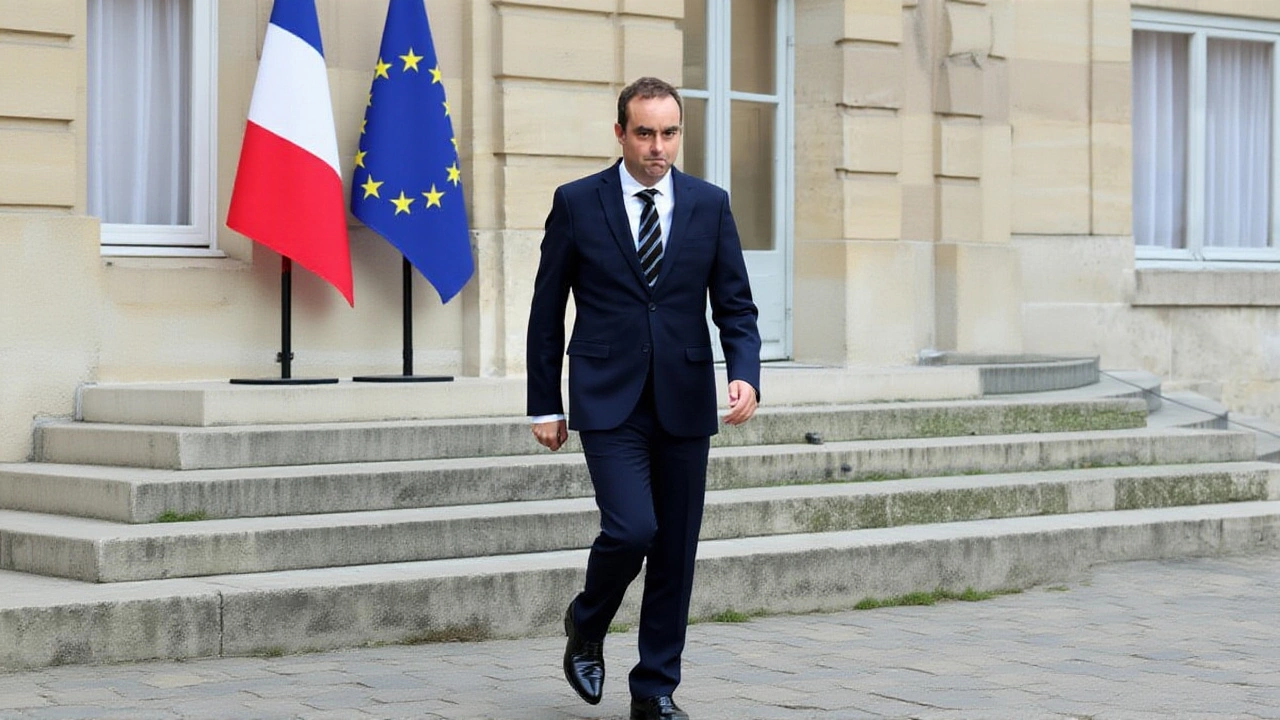Sébastien Lecornu – French Politics, Defence and Reform
When talking about Sébastien Lecornu, a French politician who has held senior cabinet posts including Minister of the Armed Forces and former Interior Minister. Also known as Sébastien Lecornu (politician), he plays a key role in shaping France’s security and reform agenda. His career unfolds within the French government, the executive branch of the Fifth Republic that directs national policy, and under the banner of La République En Marche!, the centrist party founded by Emmanuel Macron. These three entities intersect: the party influences the government's agenda, and Lecornu’s positions embody that link.
From Young Deputy to Cabinet Minister
Lecornu entered the National Assembly at just 28, representing the Eure department. His early focus on youth employment and digital innovation earned him a spot on the Ministry of the Interior, the department responsible for internal security, policing and civil administration as Secretary of State for Local Authorities. This role gave him hands‑on experience with municipal reforms, which later informed his approach to national security. The trajectory shows a clear pattern: local governance expertise fuels higher‑level policy making.
As Interior Minister from 2020 to 2022, Lecornu oversaw police reforms, counter‑terrorism strategy, and the delicate balance between civil liberties and public safety. He introduced new training standards for officers, pushed for better coordination between prefects and local mayors, and championed the “Safeguard the Republic” initiative aimed at protecting democratic institutions. During this period, the Ministry of the Interior worked closely with the broader French politics landscape, illustrating how security policy is shaped by parliamentary debate and public opinion.
In May 2022, President Macron appointed him Minister of the Armed Forces, moving him into the Ministry of the Armed Forces, the cabinet department that commands the French Army, Navy and Air Force and manages defence procurement. This switch marked a semantic shift: from safeguarding internal order to defending national sovereignty abroad. The ministry's mandate includes modernising equipment, reinforcing NATO commitments, and supporting European defence initiatives. Lecornu’s previous interior experience informs his defence outlook—he emphasizes intelligence sharing and crisis response, linking the two ministries in practice.
Under his watch, the Armed Forces embarked on a digital transformation, integrating AI‑driven logistics and interoperable communication systems. He also advocated for a reduced conscription footprint while maintaining a strong reserve component, balancing manpower needs with budget constraints. These reforms echo his earlier push for efficiency in local administration, demonstrating a consistent theme: streamline structures to boost effectiveness.
La République En Marche! has positioned Lecornu as a reform‑oriented technocrat, a profile that resonates with the party’s modernizing agenda. His policies often reflect the party’s emphasis on European integration, climate‑aware defence spending, and a pragmatic approach to security. By aligning his ministerial actions with the party’s platform, Lecornu exemplifies how a single political figure can translate party ideology into concrete government programmes.
Public perception of Lecornu remains mixed. Supporters praise his decisive leadership and ability to navigate complex bureaucracies, while critics question the pace of reforms and their social impact. Media analysis frequently examines his role in the 2023 pension protests and the response to the rise in cyber threats, highlighting the intertwined nature of domestic and defence challenges. This dynamic underscores the semantic triple: “French politics influences security policy, which in turn shapes public opinion.”
Below you’ll find a curated collection of articles that dive deeper into Lecornu’s policy moves, his impact on the French government, and the broader political context. Whether you’re tracking defence procurement, interior reforms, or the party’s strategic direction, these pieces offer practical insights and up‑to‑date analysis.
French PM Sébastien Lecornu Resigns After One Month, Deepening Crisis
Sébastien Lecornu resigns after 23 days, deepening France's political crisis and prompting opposition calls for snap elections and a new coalition.
